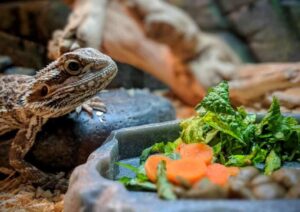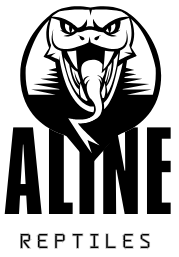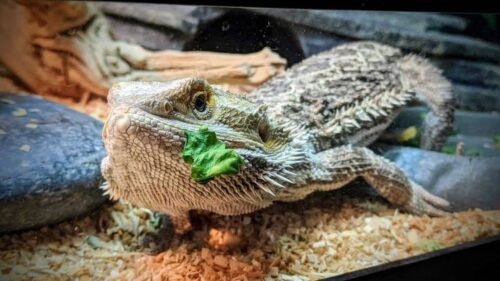You’re sitting down for a healthy meal, and your bearded dragon, sitting on your shoulder or lounging in its enclosure, watches you with curiosity. You glance at the carrots on your plate and wonder, “Can I share this healthy vegetable with my pet?” It’s a common question among reptile owners—can bearded dragons eat carrots? Is it a safe, nutritious snack, or is it a food best avoided?
If you’ve ever found yourself questioning whether carrots are a suitable addition to your dragon’s diet, you’re not alone. As bearded dragons have become increasingly popular pets, more and more owners are delving into the finer details of reptile nutrition, hoping to ensure their dragons live happy, healthy lives. Understanding which foods are safe and beneficial is key to a thriving pet.
In this article, we’ll dive deep into whether carrots are safe for bearded dragons to eat, the nutritional benefits they offer, the potential risks of overfeeding, and some expert tips on how to feed them properly. So, let’s get started and see whether carrots deserve a spot in your bearded dragon’s diet.
Nutritional Value of Carrots

Before we dive into whether carrots are suitable for bearded dragons, let’s first look at what makes this vegetable so appealing. Carrots are loaded with nutrients that are beneficial for humans—but what about bearded dragons?
Key Nutrients in Carrots
Carrots are primarily known for being rich in beta-carotene, the compound that gives them their vibrant orange color. Beta-carotene is a precursor to vitamin A, which is vital for numerous bodily functions, including vision, skin health, and immune system support. In addition to vitamin A, carrots contain a decent amount of fiber, vitamin C, and potassium.
Here’s a quick breakdown of the main nutrients in carrots:
- Vitamin A (via Beta-Carotene): Supports eye health, immune function, and growth.
- Fiber: Promotes digestion and regular bowel movements.
- Vitamin C: Antioxidant that supports the immune system.
- Potassium: Helps maintain proper heart and muscle function.
- Calcium: Though low in carrots, calcium is still important for bone health in bearded dragons.
How These Nutrients Benefit Bearded Dragons
Now, let’s look at how these nutrients might affect your bearded dragon:
- Vitamin A: This vitamin is essential for the health of your dragon’s eyes, skin, and immune system. However, too much vitamin A can lead to toxicity, causing lethargy, swelling, and other health problems. In moderation, vitamin A supports growth and vitality.
- Fiber: Carrots contain both soluble and insoluble fiber, which are beneficial for digestion. However, too much fiber can lead to loose stools or constipation, so moderation is key.
- Potassium: While potassium is essential for muscle and nerve function, excessive amounts can cause an imbalance in your dragon’s electrolytes, leading to health complications.
So, while carrots provide beneficial nutrients, understanding how to balance them in your pet’s diet is crucial to avoiding the risks of overfeeding.
Can Bearded Dragons Eat Carrots?
Yes, but in moderation. Bearded dragons can indeed eat carrots, but like with many fruits and vegetables, the key is moderation. Carrots are high in sugar and vitamin A, so overfeeding them can lead to health issues like obesity and vitamin A toxicity.
Carrots should be seen as an occasional treat or a component of a balanced diet, not as a daily staple. Let’s break this down further by looking at the different ways carrots can be incorporated into your dragon’s meals.
Raw vs. Cooked Carrots
Bearded dragons can eat both raw and cooked carrots, but each method has its own set of advantages and considerations:
- Raw Carrots: Raw carrots retain all their vitamins and minerals, but their tough texture can be challenging for some dragons, especially young or elderly ones. Additionally, raw carrots pose a choking hazard if not properly chopped or shredded.
- Cooked Carrots: Cooking carrots softens them, making them easier to digest and reducing the risk of choking. Steaming or boiling is the best method to preserve most of the nutrients. However, cooking carrots reduces some of their vitamin content, particularly vitamin C, which is sensitive to heat.
In general, raw carrots are fine for older or healthy dragons, but for younger or more delicate pets, cooked carrots might be a safer and easier-to-digest option.
Frequency of Feeding Carrots
While carrots are a nutritious treat, they should only be given occasionally. Feeding them once or twice a week is generally recommended. Overfeeding can result in excessive vitamin A intake, which can be toxic over time. Also, the sugar content in carrots can contribute to obesity, so it’s important to keep their intake in check.
Portion Sizes and Preparation Tips
Now that we’ve established that bearded dragons can eat carrots in moderation, let’s discuss portion sizes and preparation.
Appropriate Serving Size
The appropriate amount of carrot depends on your bearded dragon’s age and size:
- Juveniles (less than 6 months): They should only receive a small amount of carrot, typically no more than a couple of shredded carrot pieces the size of their head.
- Adults (6 months and older): Adult bearded dragons can handle slightly larger portions, but the carrots should still be cut into thin strips or shredded to make them easy to consume. An adult can have a tablespoon or so of carrot as part of their overall meal.
How to Prepare Carrots
Proper preparation is essential to ensure your bearded dragon enjoys their treat safely. Here are a few tips on how to prepare carrots for your pet:
- Wash thoroughly: Always wash carrots well to remove any pesticides or dirt.
- Cut or Shred: Chop carrots into small, manageable pieces, or shred them. This reduces the risk of choking and makes them easier to digest.
- Avoid Peels: While the skin of carrots is edible, it’s best to peel them to remove any tough, fibrous parts that may be hard for your dragon to digest.
- Consider Cooking: If your bearded dragon struggles with raw veggies, steaming or boiling carrots for a few minutes can soften them and make them more palatable.
Health Benefits of Feeding Carrots
Now let’s dive into the potential health benefits of feeding carrots to your bearded dragon when done right:
1. Boosts Vision
Carrots are rich in beta-carotene, which is converted into vitamin A in the body. This vitamin plays a critical role in eye health and maintaining good vision. A steady supply of vitamin A can help keep your bearded dragon’s eyes bright and healthy.
2. Improves Immune Function
The antioxidants and vitamins in carrots help support a healthy immune system. Vitamin A, in particular, is vital for maintaining a strong immune response, preventing infections, and promoting overall well-being.
3. Promotes Healthy Digestion
The fiber in carrots can help with digestion by encouraging bowel movements and keeping the digestive system functioning properly. Fiber is essential for preventing constipation, though it should be balanced with other foods to avoid digestive upset.
Potential Risks of Feeding Carrots

Although carrots offer some health benefits, it’s crucial to understand the potential risks:
1. Vitamin A Toxicity
Bearded dragons need vitamin A, but too much can lead to hypervitaminosis A, which can cause a variety of health issues such as:
- Swelling
- Lethargy
- Poor appetite
- Organ damage
If you’re feeding carrots regularly, make sure to balance them with other vegetables that don’t contain as much vitamin A.
2. Excessive Sugar
Carrots contain sugar and, if fed too often, can contribute to obesity or metabolic issues. Moderation is key—carrots should not be a primary food source but rather an occasional treat.
3. Choking Hazards
Carrots are tough and fibrous, so if not chopped or shredded properly, they can pose a choking hazard, especially for younger dragons or those with weaker jaws.
Carrot Alternatives for Bearded Dragons
While carrots can be a healthy occasional treat, it’s essential to offer your bearded dragon a variety of other vegetables to keep their diet balanced. Here are some great alternatives:
- Leafy Greens: Collard greens, mustard greens, and dandelion leaves are excellent sources of calcium and other essential nutrients.
- Other Root Vegetables: Sweet potatoes are a good alternative to carrots, offering a similar texture but with different nutrient benefits.
- Fruits: Offer fruits like strawberries, apples, or blueberries as an occasional treat to mix things up.
- Insects: Don’t forget that insects like crickets, dubia roaches, and mealworms should make up a significant portion of your dragon’s diet for adequate protein.
Conclusion
So, can bearded dragons eat carrots? The answer is yes, but with caution. Carrots can be a nutritious addition to your bearded dragon’s diet, offering valuable nutrients like vitamin A, fiber, and potassium. However, they should be fed in moderation, with careful attention to portion sizes and preparation.
Feeding your dragon a balanced diet that includes a variety of vegetables, insects, and fruits will help them thrive and maintain optimal health. So, while carrots are a great occasional treat, always ensure they are part of a well-rounded nutritional plan.
We hope this article helps you feel more confident about offering carrots to your bearded dragon. As always, when in doubt, consult with a reptile vet to tailor your pet’s diet to their specific needs.

